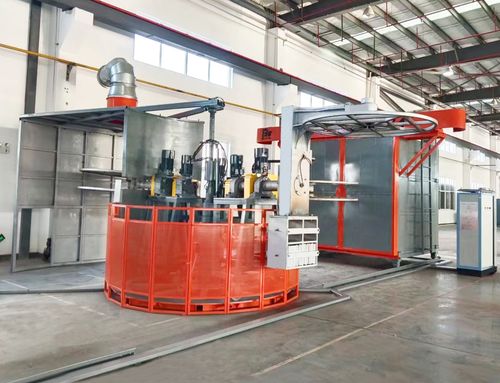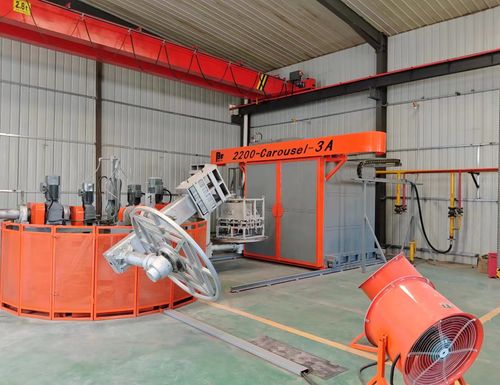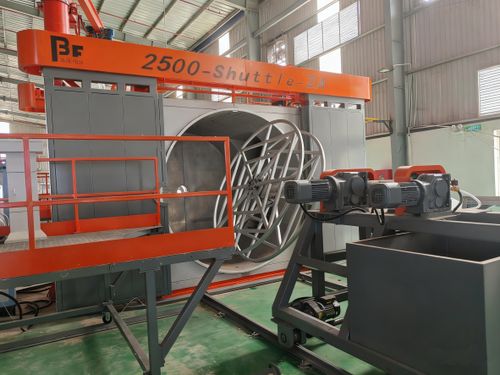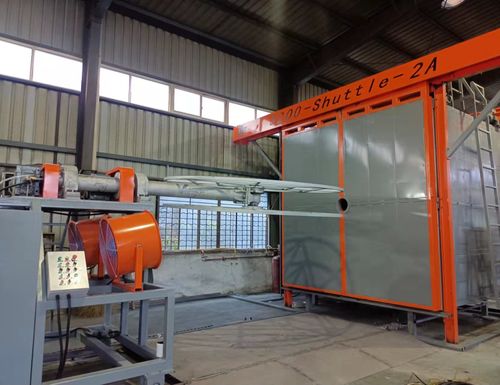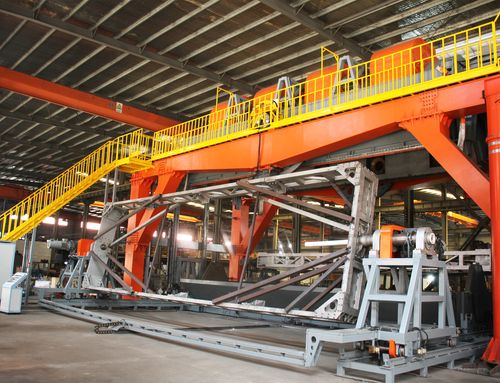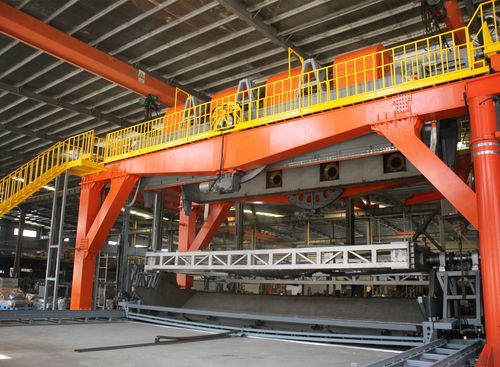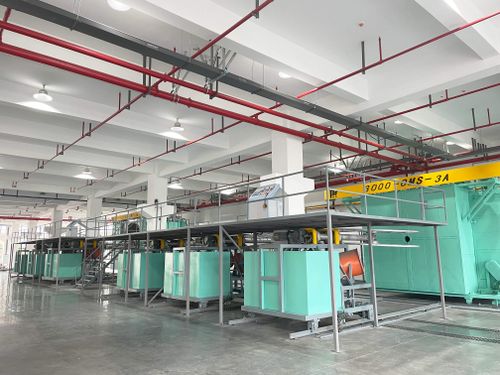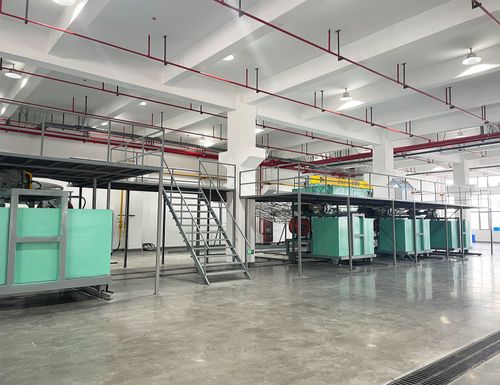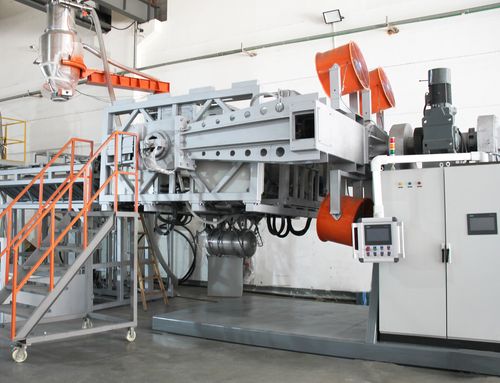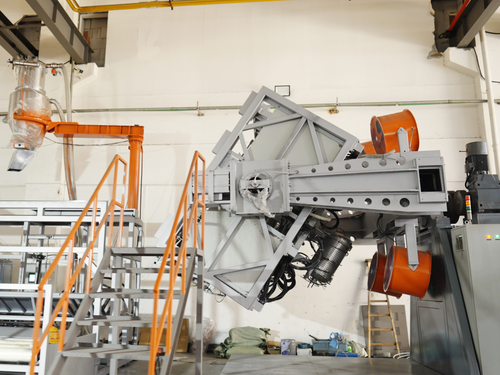
Get A Quote
Rotational Molding Machine
Benfan Machinery is a trusted rotational molding machine manufacturer and supplier of high-quality roto moulding machines for diverse industrial applications. Our advanced rotational molding machine for sale delivers precision, durability, and excellent performance at a competitive price. The rotational moulding process ensures uniform wall thickness, corrosion resistance, and long-lasting plastic products. We also offer custom rotational molding solutions to meet specific industry requirements, improving production efficiency and product quality. Choose our advanced roto moulding machine for reliable, eco-friendly manufacturing. Contact us today for tailored rotational molding solutions.
Advantages of Rotomolding Machines in Industry Operations
Cost-Effective Production
Cost-Effective Production
Rotational molding allows for cost-effective production of complex shapes and large rotomolded plastic products without the need for expensive molds.
Rotational molding allows for cost-effective production of complex shapes and large rotomolded plastic products without the need for expensive molds.
Design Flexibility
Design Flexibility
This plastic rotational molding process offers design flexibility, enabling the production of intricate shapes, double layered structures, and varying wall thicknesses.
This plastic rotational molding process offers design flexibility, enabling the production of intricate shapes, double layered structures, and varying wall thicknesses.
Durability
Durability
Rotomolded products are known for their durability, impact resistance, and ability to withstand harsh environments.
Rotomolded products are known for their durability, impact resistance, and ability to withstand harsh environments.
Material Variety
Material Variety
A wide range of plastics can be used in rotational molding. Polyethylene (PE) is the most common, followed by PVC, PA, PP, and PC.
A wide range of plastics can be used in rotational molding. Polyethylene (PE) is the most common, followed by PVC, PA, PP, and PC.
Environmentally Friendly
Environmentally Friendly
The rotational molding process is environmentally friendly, as it generates minimal waste and allows for material recycling.
The rotational molding process is environmentally friendly, as it generates minimal waste and allows for material recycling.
Low Tooling Costs
Low Tooling Costs
Compared to other molding processes, rotational molding features lower tooling costs, making it a cost-effective solution for small to medium production runs.
Compared to other molding processes, rotational molding features lower tooling costs, making it a cost-effective solution for small to medium production runs.
What is Rotational Molding?
Rotational molding, also known as rotomolding, is a flexible manufacturing method for producing hollow plastic products. The process begins with loading powdered plastic into a mold, which is heated and rotated along two perpendicular axes. This causes the material to evenly coat the mold’s interior, forming a smooth, durable rotomolded plastic part. Once cooled, the mold is opened to release the finished product. This method is ideal for creating custom rotomolding products with excellent durability and design versatility.
Application of Rotational Molding Machine
Rotational molding machines are employed across various industries to produce durable and versatile products. Common applications include:
Agriculture: Tanks, bins, and silos for storing water, feed, and chemicals.
Automotive: Fuel tanks, air ducts, and other components.
Construction: Barriers, traffic cones, and other infrastructure elements.
Consumer Goods: Toys, outdoor furniture, and recreational equipment like kayaks and canoes.
Industrial: Custom parts and containers designed for specific industrial applications.
These machines are prized for their ability to produce consistent, high-quality products that meet rigorous standards.
Rotational Molding Machine Type
Carousel Machines: These machines feature multiple arms and stations, facilitating continuous production. They are ideal for large-scale manufacturing due to their high efficiency and capacity to handle multiple molds simultaneously.
Shuttle Machines: Shuttle machines are known for their versatility. They have molds that move back and forth between heating and cooling stations, making them suitable for medium to large products. This design allows for precise control over the molding process, ensuring consistent quality.
Rock and Roll Machines: These machines rotate the mold in one axis and rock it in another, making them perfect for long, narrow products such as kayaks, boats, and large storage tanks. The rocking motion ensures even distribution of the plastic material.
Oven Moveable Machines: In these machines, the molds are placed into a stationary oven for heating. This setup provides precise temperature control and uniform heating, essential for producing high-quality parts with consistent wall thickness.
Electrical Heating Machines: These machines use electrical elements for heating, offering precise temperature management. They are often employed in environments where traditional heating methods are impractical, providing a clean and efficient alternative.
Each type of rotational molding machine is designed to meet specific production needs, ensuring versatility and efficiency in manufacturing a wide range of products.

